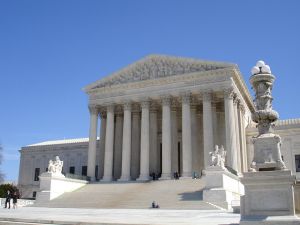 Kentucky is an “employee at will” doctrine state. In Kentucky your employer can terminate you at any time, with or without reason, and you can quit at any time, with or without reason (provided there is not a written contract to the contrary). The Kentucky Supreme Court has interpreted the “employee at will” doctrine as meaning: “An employer can fire an employee for cause, without cause, or even for cause that may seem to be morally indefensible. It is only illegal if the employer violates a contract, retaliates against an employee for exercising certain legal rights or if the employer takes action in violation of a protected status (discriminates).”Kentucky employee’s have very limited protections against bad employers. If a Kentucky employee is fired or suffers negative consequences in the workplace, they must examine the below to consider if they have legal action against their employer.
Kentucky is an “employee at will” doctrine state. In Kentucky your employer can terminate you at any time, with or without reason, and you can quit at any time, with or without reason (provided there is not a written contract to the contrary). The Kentucky Supreme Court has interpreted the “employee at will” doctrine as meaning: “An employer can fire an employee for cause, without cause, or even for cause that may seem to be morally indefensible. It is only illegal if the employer violates a contract, retaliates against an employee for exercising certain legal rights or if the employer takes action in violation of a protected status (discriminates).”Kentucky employee’s have very limited protections against bad employers. If a Kentucky employee is fired or suffers negative consequences in the workplace, they must examine the below to consider if they have legal action against their employer.
It is illegal to:
(i) discriminate based upon race, gender, religion, national origin, age, pregnancy, or disability;
(ii) require an employee to lie to a government authority or in an investigation, or take action against an employee who refuses to do such;
(iii) require an employee to violate the law, or take action against an employee who refuses to do such;
(iv) prevent an employee from reporting violation of the law, including civil statutes such as discrimination laws and/or suspected healthcare violations or dangers related to a medical patient’s care;
(v) take action against or fire an employee in violation of the terms of a specific written contract of employment between the employer and the employee.
Workplace Sexual Harassments & Harassments In order for work place harassment or discrimination to be actionable, it must be more than personality conflicts and a general dislike of a person, and it must be “severe and so pervasive” so that it “unreasonably interferes with a person’s ability to do his/her job.” Isolated acts or isolated comments are NOT sufficient under the law to rise to the level to be actionable in court.
Workplace Discrimination
Discrimination has to be based upon one of the following: race, gender, religion, national origin, age, pregnancy, or disability. These are referred to as protected statuses.
Under a discrimination legal action, the discrimination has to be evidenced by either:
(1) direct evidence, which would be the effect of verbally or in writing stating negative expressions or actions towards a person based one of the protected statuses above, or (2) indirect evidence, which would be a comparison between how protected status persons are treated versus how those who do not fall in the protected status are treated.
As with workplace harassments, the workplace discrimination will not be legally actionable if it is an isolated incident.
Government Employee Whistleblower Protections
It is illegal for a government agency to take action against an employee who in good faith reports a suspected violation of law, fraud, or abuse of authority, to the proper authorities or another government agency.
These persons are referred to as “Whistleblowers.”
Continue reading →
 Two lawsuits have been recently filed in Oldham County Kentucky Circuit Court. One is against the former Mayor of LaGrange, Kentucky alleging that the Mayor either removed or caused to be removed, records belonging to the city and pertaining to the city’s business. The second lawsuit alleges that the City of LaGrange improperly sold a home it owned, which was assessed at $85,000.00, to a man for only $14,711.00. Both cases involve active of the former Mayor of the City.
Two lawsuits have been recently filed in Oldham County Kentucky Circuit Court. One is against the former Mayor of LaGrange, Kentucky alleging that the Mayor either removed or caused to be removed, records belonging to the city and pertaining to the city’s business. The second lawsuit alleges that the City of LaGrange improperly sold a home it owned, which was assessed at $85,000.00, to a man for only $14,711.00. Both cases involve active of the former Mayor of the City. Kentucky Personal Injury Attorney Blog
Kentucky Personal Injury Attorney Blog




